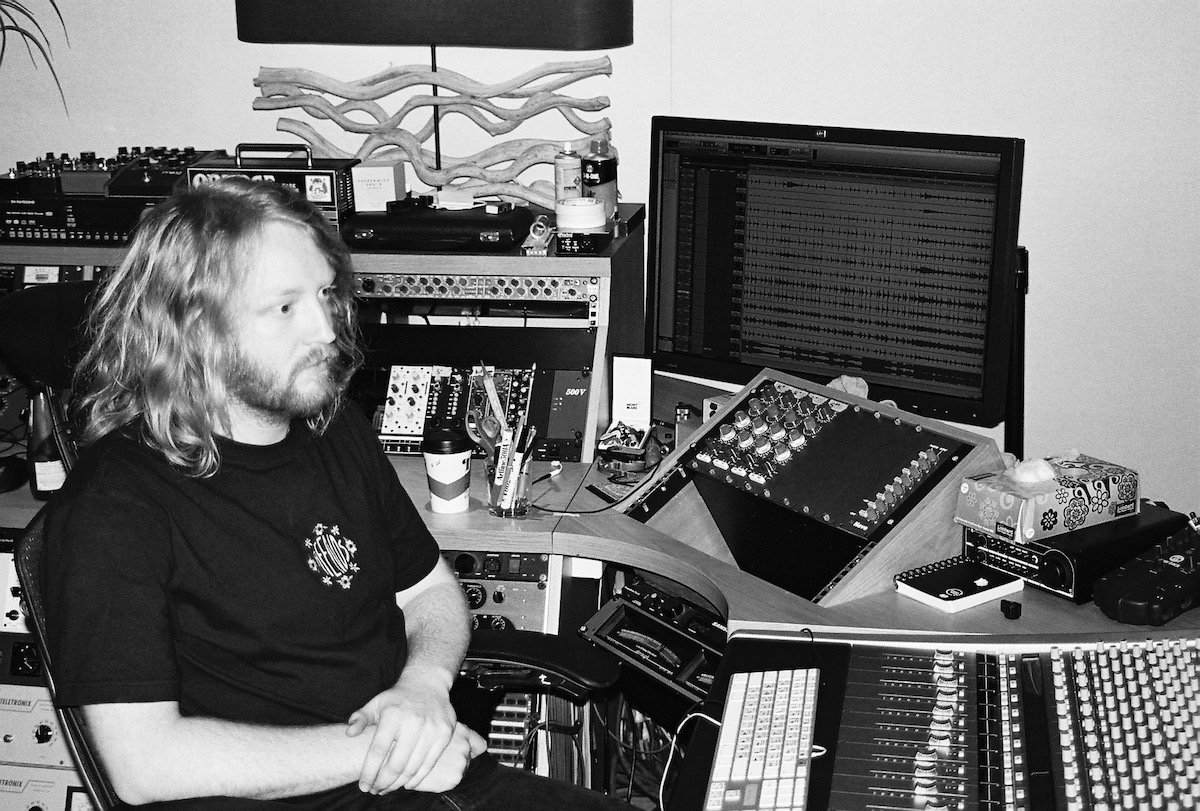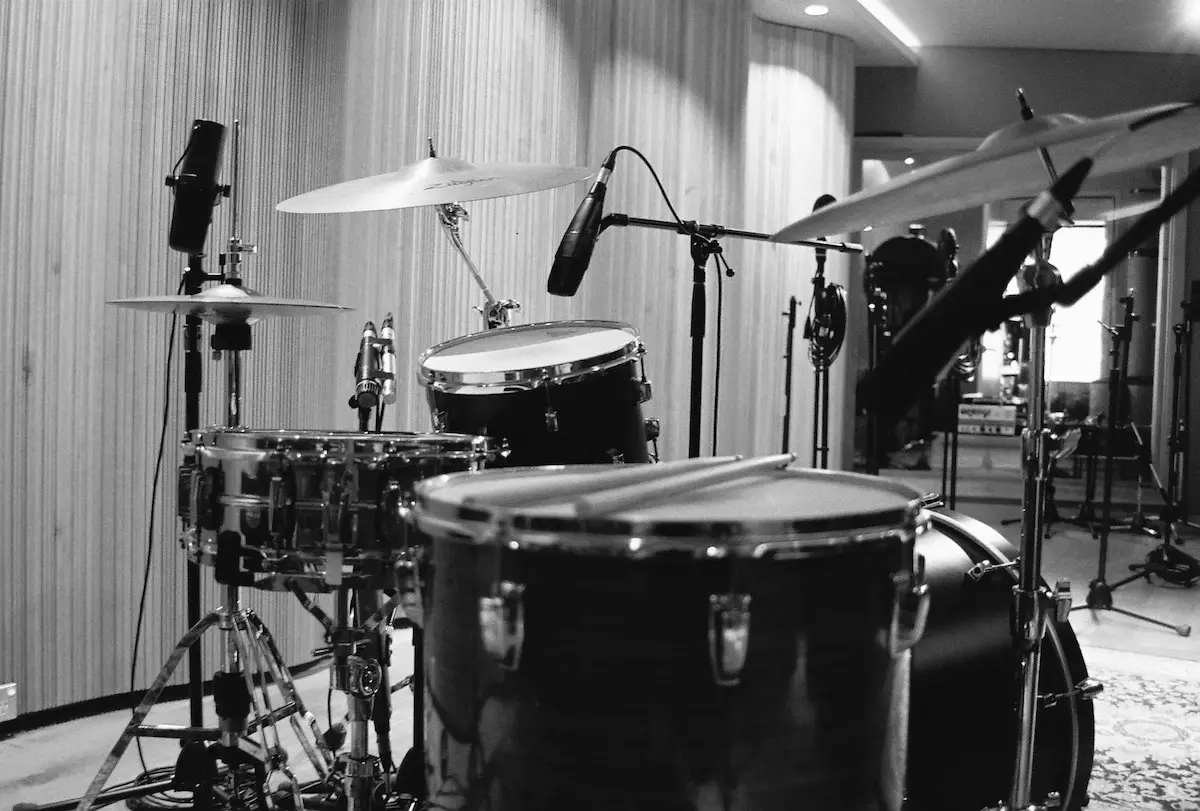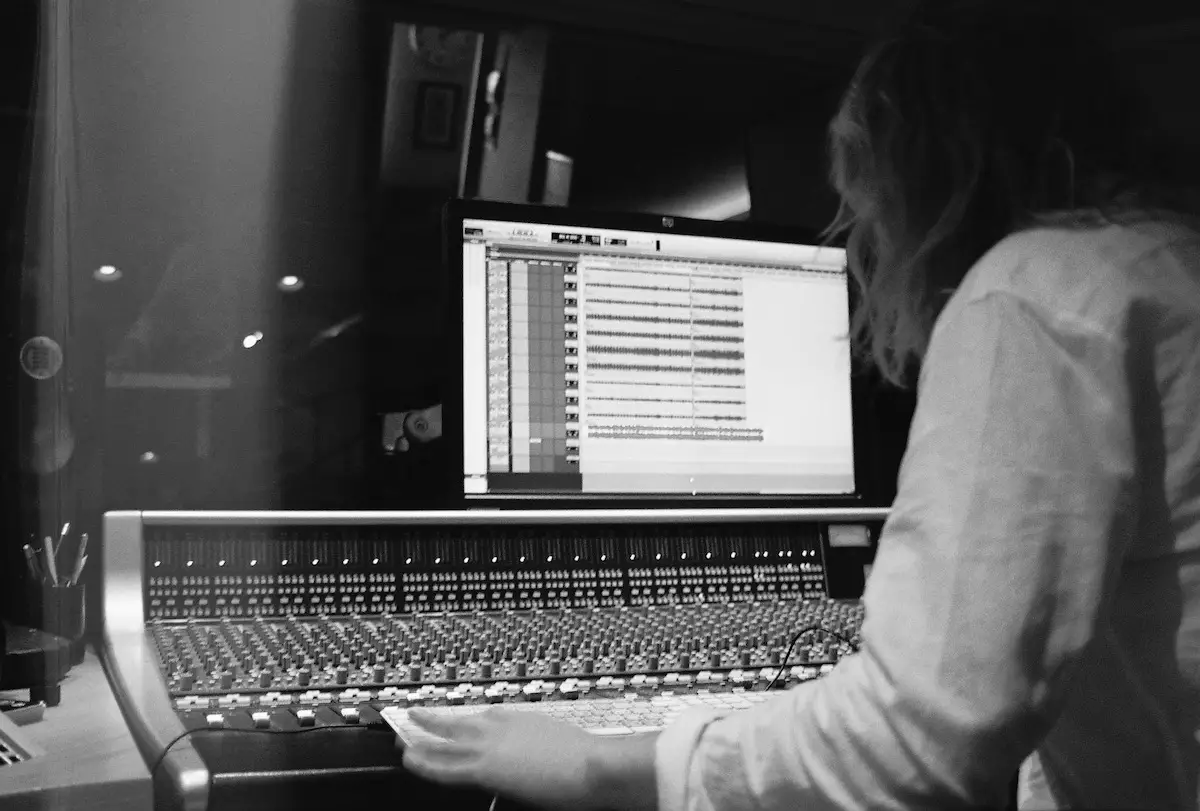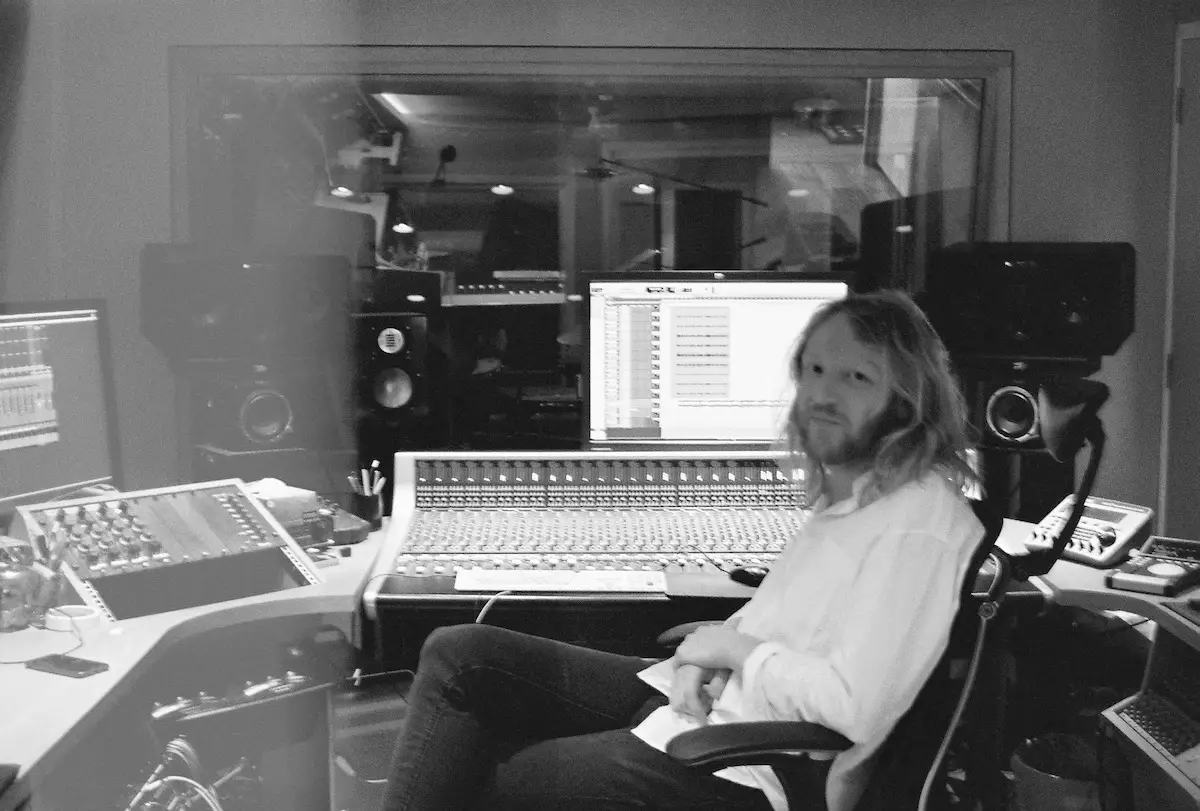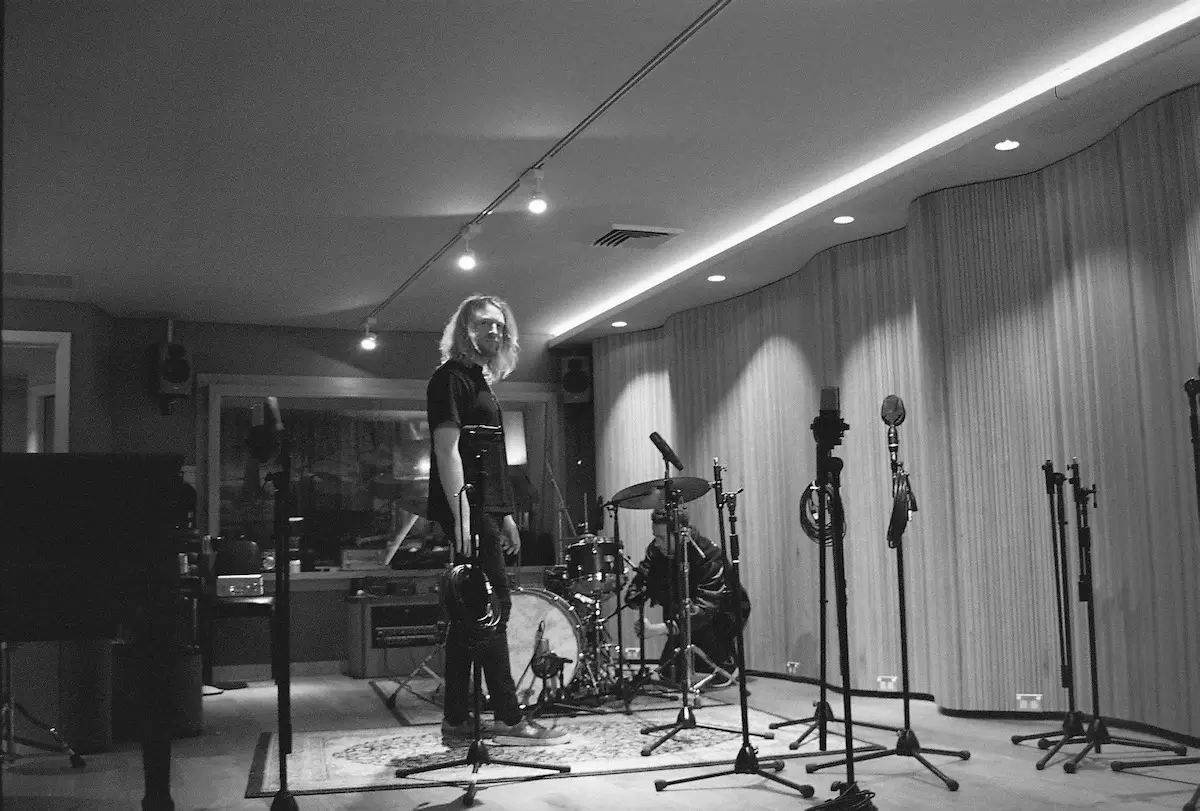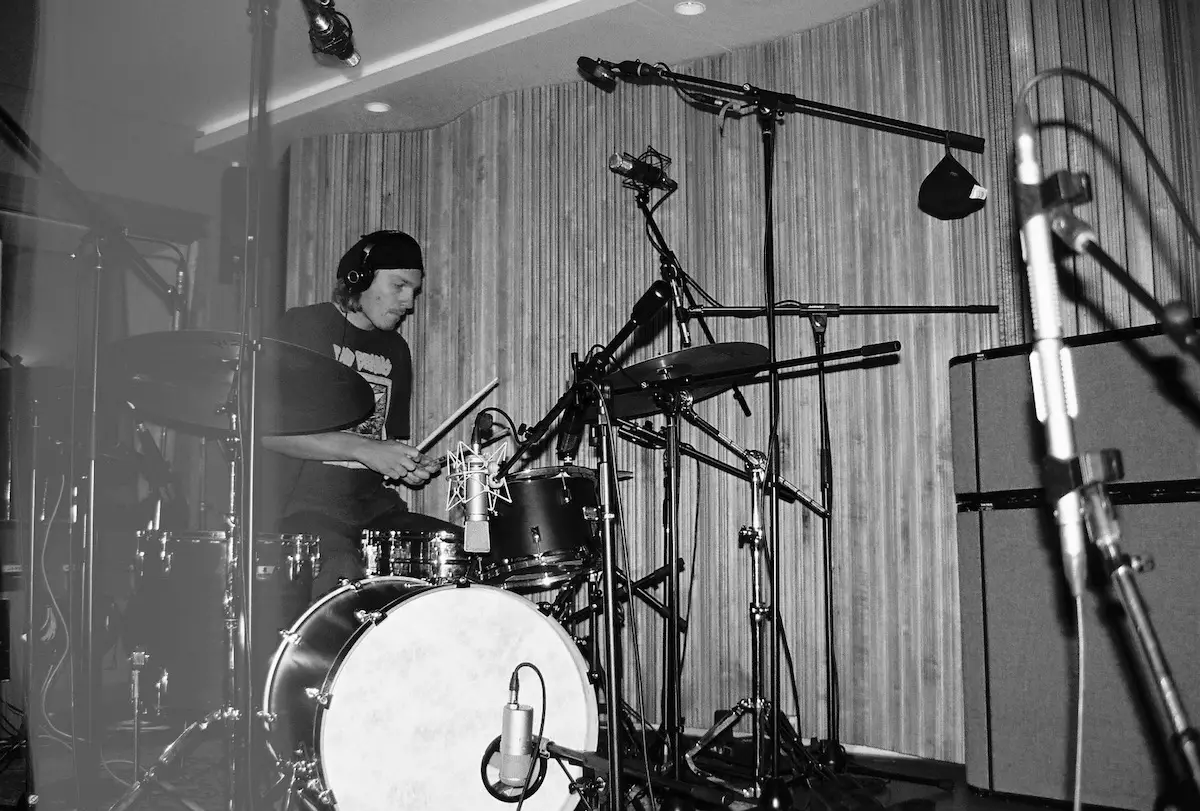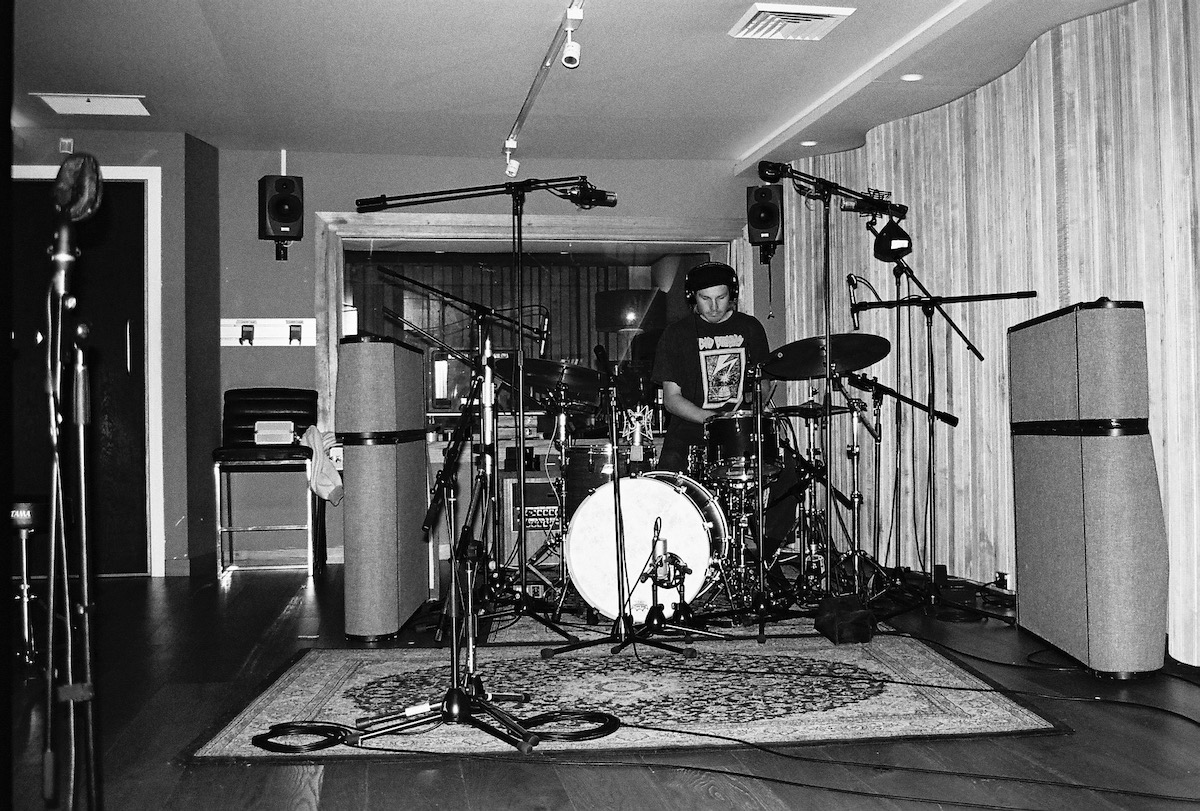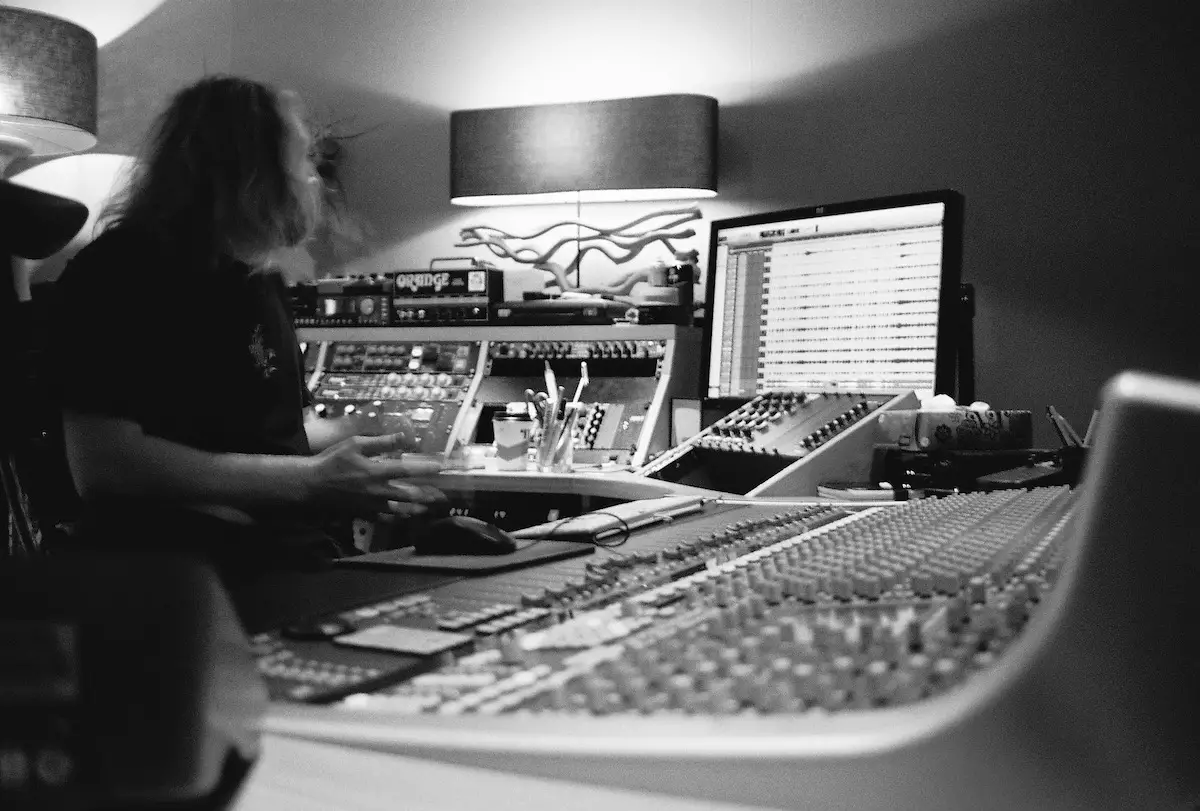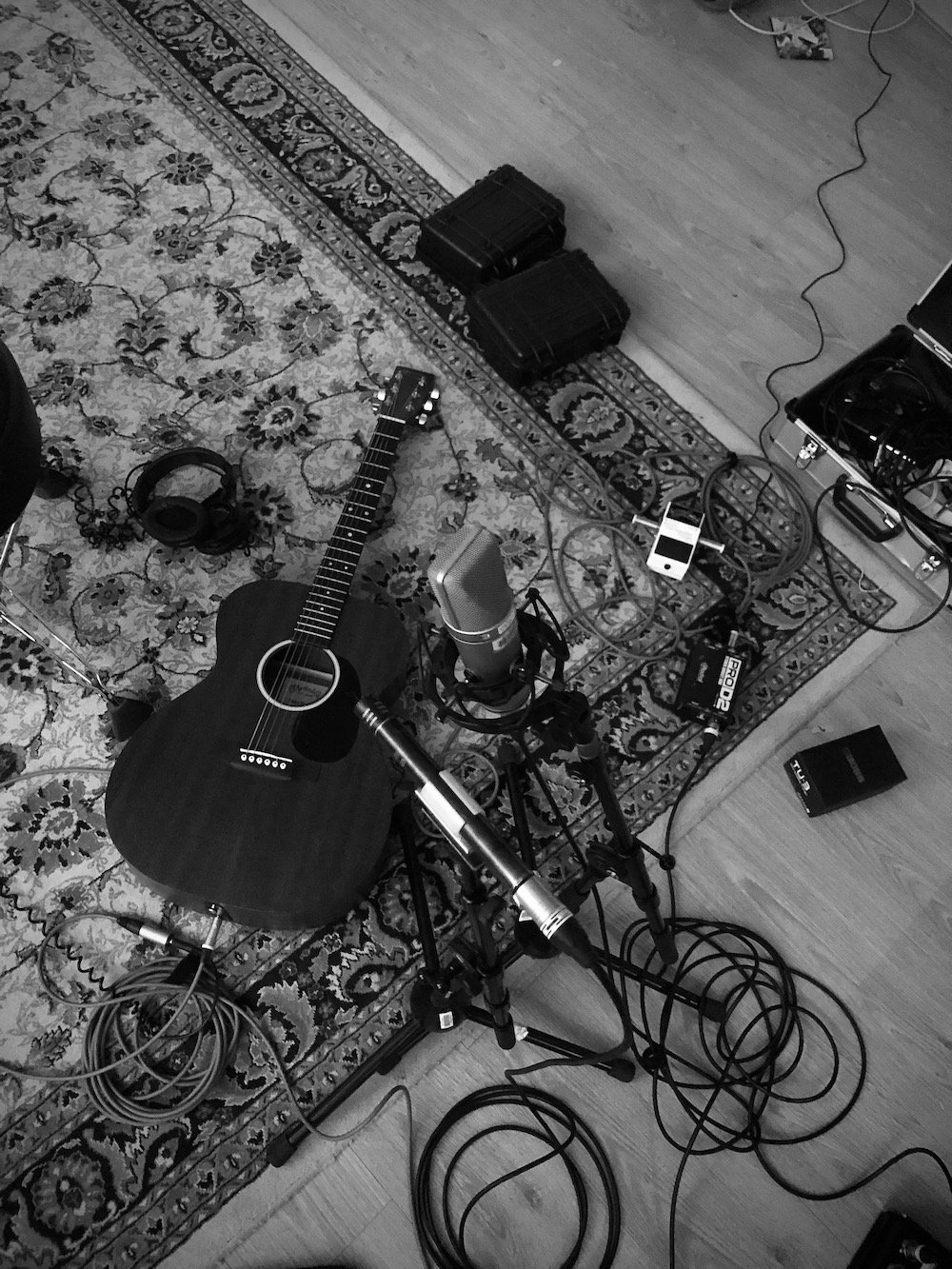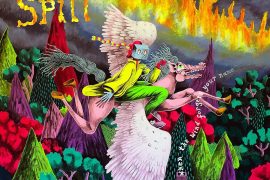Mild West’s frontman Liam Bell dives into the dynamic energy and searing emotions behind the Australian band’s debut album ‘Machine Learning,’ a dark, cinematic, and charged rock album dwelling in the depths of the Digital Age.
Stream: “Machine Learning” – Mild West
‘Machine Learning’ strives to create a picture of the not too distant future and highlight the potential dangers and benefits that may come from humanities innovation in the 21st Century.
Dystopian prophesies and warnings about the not-so-distant future come hand in hand with rock music: Rush did it with 2112, Styx did it with Kilroy Was Here, Radiohead did it with OK Computer, Muse did it with Absolution, and now Mild West have done it with their debut album, Machine Learning. Of course, “the future” (as a concept) used to be some inconceivable and uncertain time, far enough out of reach that the music had a sci-fi element to it. With the present realities of artificial intelligence, virtual reality, machine learning, and more, “the future” is undeniably upon us – making Mild West’s exploration of the intersection between humanity and technology all the more urgent and ominous. A dark, cinematic, and charged rock album, Machine Learning soars with dynamic energy and searing emotions as Mild West dwell in the stunning, visceral depths of the Digital Age.
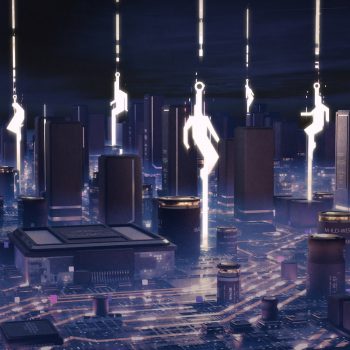
lonely one, I’ve come to tell you
that the lights turned on
now when we turn around, despite the sun
we never have to brave the night
no more love
no more imaginary eyes above
it’s so compelling, but it’s not enough
it’s not enough to save your life
– “Machine Learning,” Mild West
Independently released April 22, 2022, Mild West’s Machine Learning is a stunningly expansive, contemplative, and impassioned soundtrack to digital despair. The Sydney-based five-piece of Liam Bell, Isaac Laurence, Nat Tyrrell, Helen Griffith, and Adam Dooker bring the worries and wonders of our modern day to life with an enchanting level of energy and charisma, considering the subject matter – and yet, it’s that unbridled passion and raw rock vigor that makes their music so compelling in the first place. Machine Learning follows two EPs – 2017’s debut Howler and 2019’s sophomore follow-up Only Sleep – building upon both the sounds and the themes established in the band’s earlier work.
While Mild West have never been strangers to musical exploration and experimentation, their first full length album feel like a fittingly cohesive journey through the darkness – with plenty of reverb and radiant guitars lighting the way forward. Balancing between the heavy and the light, Mild West embrace a wealth of warm and cool immersive instrumentals, stirring and stunning melodies – all of which add up to an emphatic and unrelenting record that hits hard, digs deep, and doesn’t let go.

“Machine Learning is our first full length LP which explores the growing influence of technology in our increasingly digital world. The album delves into concepts such as artificial intelligence, interstellar travel, and virtual reality, and attempts to tie these themes together with a dense, synthetic soundscape,” Mild West frontman Liam Bell tells Atwood Magazine. “Our initial vision was to create an album that took the best elements of all of our early music and compile it into a cohesive journey that was conceptually and musically coherent. As we had a pretty clear idea from the start of what the musical and lyrical themes were going to be centered around, the idea itself didn’t change too much throughout, however some of the sonic directions that we took were definitely a bit of a deviation from what we expected. Due to the strong use of science fiction themes and mechanical imagery throughout we wanted to utilise more synthetic and digital soundscapes than our previous works. What was unexpected was how well some of the more acoustic elements provided an interesting contrast and acted as a representation of the human element within this otherwise digital paradigm.”
“The title was inspired by the album’s opening track, which was one of the first songs that we were workshopping, and was centered around artificial intelligence and the rise of machine learning in our world. The term had popped up a few times while writing the song and it became clear pretty early on that it was a frontrunner for the album title as well. The technological and science fiction themes started working their way into the other tracks that I was writing, so we decided to run with it for the overarching concept of the album and settled on it as the album title quite early in the process.”
“I feel like the album does a good job of summarising the sounds and songwriting tropes that we had developed over our first two EPs, but puts them on display in a more refined and polished way,” he adds. “I think it maintains a decent balance between simple and accessible hooks and technical fluency without going too far in either direction, and also showcases a variety of dense soundscapes that have become a signature of our music.”
Machine Learning truly is a record of “Digital Age ruminations,” as Bell describes it.
From start to finish, he and his bandmates engage listeners in stories of apocalyptic ends at technology’s (and our own) hands; in vast reflections on the vastness and limitlessness of time and space; of the substantive, physical touch we’ve lost in going so far into the cold grips of digital life.
“The Digital age has come, you’ve wandered the dark for so long. Now living in danger of the horror that I can’t unfold,” the band sing in the aptly titled “Pompeii,” evoking powerful, poetic images of the ancient Roman city so unaware of its own doom. “Oblivion fades, the sun a faltering spark of old hope… but still I will soldier on to go beyond horizons unknown.” Why do we have a technology doesn’t? A human heart; a human brain: Intellect and empathy combined. Mild West’s music doesn’t always find that spark of light or reason to hope, but they shine particularly bright on songs like “Pompeii” and the dynamic, soaring standout “Life Again” – one of the album’s most memorable moments, filled with as much musical wonder as it has faith in the future’s potential and possibility.
Additional moments of note include the beautiful, tender, expressive piano work on “Maelstrom” (as well as its rip-roaring, rollicking guitar solo), and the churning, seductive pulse of the album’s lead single, “Nightfall.”
“One of the musical highlights would be the chord progression in the final section of ‘Change of Pace’. There’s something about the way the harmony builds and releases tension that really resonates with me. It was also one of those parts that seemed to come together really quickly and felt more like I had discovered it rather than written it,” Bell says on the subject of favorites. “From a production perspective I am really happy with the layering and sonic aesthetic in the second half of Forgotten Everything, with the cello, harp, and backing vocal sections creating a lush backdrop for the musical peak of the track. It is one of the densest sections of the album, yet it manages to fit together without instruments clashing or fighting for space.”
Speaking to his favorite lyrics, he cites the chorus of “Pompeii”: “‘No I won’t be set in stone like Pompeii under the same old molten love.‘ This song is written from the perspective of an AI that is warning humanity of its unstoppable rise to power and inability to feel human emotion. It intends to demonstrate that AI has the potential to make decisions that are completely unhindered by love or what society considers ethical. I like how the apocalyptic themes in the rest of the song are summarised in this line, and how it weirdly contorts the words lava and love.”
“Another would be the chorus of ‘Life Again’: ‘Oh how we change, red sunsets after rain, the cloud now even knows my name.’ One of the most visual lines in the album for me, I like the way it plays on the changing clouds in the sunset and the digital cloud that stores our collective memory. To me it’s an interesting example of how terminology and language evolves alongside our technology and I think it works well in a song that focuses on our ability to change and create.”

Whether or not we live to see Machine Learning‘s prophesies come to light, Mild West’s album nevertheless offers plenty of food for thought and music for the soul.
“I just hope that listeners find something in it that speaks to them, be it from a lyrical, musical, or production standpoint, and that people can derive their own unique interpretations of the songs,” Liam Bell shares. “I find it extremely interesting when someone draws meaning from my lyrics that I hadn’t necessarily intended, and love when it changes my own perspective on a song. Personally, I have learnt a massive amount from making this album. On almost all fronts I feel like this record has pushed me and the rest of the band to our limits, and has inspired me to refine my songwriting and create something even more ambitious next time around. All in all it has taught us some pretty valuable lessons that we can’t wait to put into practice on LP 2.”
Experience the full record via our below stream, and peek inside Mild West’s Machine Learning with Atwood Magazine as the band goes track-by-track through the music and lyrics of their debut album! Take a further inside the recording process with a gallery of studio shots at the end of the article.
— —
:: stream/purchase Machine Learning here ::
Stream: ‘Machine Learning’ – Mild West
:: Inside Machine Learning ::
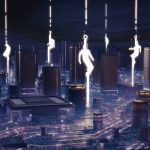
— —
Machine Learning
The title track of the album and the first song that sparked the idea for the record’s concept, Machine Learning warns of the rise of Artificial Intelligence and machine sentience. A pandora’s box opened unknowingly when humanity first harnessed electricity. Something that can’t be undone. It comes with the realisation that our best chance is to build a society in which we can coexist with AI and hope that it shares our goals and ethics. The track was built from the finger-picked guitar part in the intro, and is one of the few songs on the record that was initially written on the guitar. After the basic guitar parts had been figured out the track was structured and arranged on the farfisa organ, inspired by Pink Floyd and chosen for its vintage sci-fi aesthetic. It is one of the most chordally interesting pieces on the album and felt like an appropriately cinematic track to open the record with.
Pompeii
A warning message from an unloving AI that is slowly taking over society. Pompeii heralds apocalyptic imagery as our world becomes increasingly reliant on technology. The vast, epic soundscape acts as a foundation for the digitised vocals to caution the listener of the ambivalence that artificial life may have towards us and our morals. Since its conception Pompeii was seen as a sister track to Machine Learning, and was always intended to be paired with it on the album. It therefore contains a lot of similar imagery in the lyrics but leans more into the epic, apocalyptic soundscape in an attempt to emphasise these themes. The chorus lyrics were written in Pompeii after a day of trekking around Mt Vesuvius during a heavy storm. Just as I was leaving the ruined city, the cloud cover broke to reveal a bright red glow at sunset, which was very striking against the backdrop of the volcano, and was a stark reminder that even a flourishing civilization can be destroyed by a threat that is right under its nose.
Life Again
Life Again provides a more positive view on our technological advancement, praising our ability to create and innovate. Change is inevitable, and under the right circumstances can lead to dramatic improvements to our lives. The internet age has brought forth previously unimaginable communication possibilities, and has allowed us to freely share ideas and build bigger and better worlds for ourselves. This track was the last one written for the album, and was almost scrapped because it felt almost too similar to a song by The Shins in its basic form. Once we had played it as a band a few times and fitted the aesthetic to the rest of the record it quickly took its own shape and felt like it deserved a place on the album.
Forgotten Everything
An ode to exploration, Forgotten Everything paints a picture of colourful worlds both physical and metaphysical. The act of discovery and adventure through time and space can be a way to ground oneself in reality and provide a sense of meaning. One of the first tracks written on the album, the soundscape and imagery was inspired by retro sci-fi video games involving space travel. This journey is mirrored in the song’s structure which takes many twists and turns and explores a number of new motifs and colour palettes. The track ended up as a combination of two distinct pieces that borrow a lot of the same chordal and melodic structures. The second part felt to me like a combination of The Legend of Zelda and Tame Impala, which fitted perfectly with the song’s themes of exploration.
Maelstrom
Caught in the tides of the digital age yet clinging to analogue reality. Soon to be drawn into a whirlpool with no escape. This instrumental piece started as a solo piano track composed by Isaac, and was quickly built into a full band track one night after we had been out at a gig. The original demo was recorded in one take, and was essentially the first time the band had ever heard more than the intro of the track. The final version is an almost carbon copy of that demo, with all the piano flourishes and guitar parts staying true to the improvised parts from the first version of the track. The warbling outro piano on the album version was taken directly from the original demo, as the haunting feel was difficult to outdo during the actual recording session.
Nightfall
Days roll into nights, winter turns to summer, hours turn to years. The uncontrollable flow of time and entropy dictate everything we do, yet show little regard for humanities plans or concerns. Fittingly, this track was written a few years before most of the others on the record, and was intended to be on the 2019 Only Sleep EP. The version that we had at that time didn’t seem to fit with the rest of the EP, and ended up getting scrapped and forgotten for a while. Somewhere around the halfway point of writing the album we decided to rework it, and instantly realised that it was a much better fit with the new music and sonic direction in which we were heading. Most of the track was recorded in a garage and was one of the only sessions where the band was together in one room during the tracking process.
N64
Trapped in a warped loop of old video games and neon lights with an altered sense of time. N64 was inspired by an electronic track that Isaac had written using sampled drums and a tonne of synths. The hypnotic 6/4 groove in the A section of the track instantly grabbed the rest of the band, and as we started jamming over the idea it took on a very different form to anything that we’d made before. It acted as the perfect catalyst for us to try weird time signatures, key changes, and all the bizarre sounds that we were apprehensive about putting into our more pop focused songs. The name N64 is a throwback to the Nintendo 64, which was one of the first gaming consoles to take sound design from the glitchy 8-bit era to vast and cinematic soundscapes. Many of the synth sounds throughout are directly influenced by some of our favourite games, which allowed us to push the sonic boundaries and be overtly experimental.
Cyber Soma
Are we living in a simulation? Or on the way to doing so? As the metaverse expands it is realistic to imagine a society that exists solely online, expressing ourselves through avatars – our cyber selves. Soon to become intangible, will we maintain our humanity as our minds exist in lines of code? Like Machine Learning, Cyber Soma was written first and foremost on acoustic guitar, and layered with dreamy, synthetic sounds to symbolise the dichotomy between the analogue and digital world.
Carolina
An interstellar traveller’s bid farewell to home and loved ones before embarking on an interplanetary trip. With no expectation of return the traveller is conflicted about the journey, but realises that it is necessary to undertake such a daunting adventure. Carolina is the first and only song we have ever made (so far) that contains no guitar. It has quite a different aesthetic to our usual sound, but the electronic drum loop provides an interesting contrast to the acoustic piano and cello parts. Similarly to Cyber Soma, the goal was to push the limits of combining digital and acoustic sounds, and was an experiment in trying new ideas and musical directions.
Change of Pace
The last moments of an unknown soldier sinking out of sight into the ocean. Nobody can ever really know what plays on one’s mind at such a time – thoughts of home? Of loved ones? Regret? The only solace is the hope that such a change of pace will bring peace to an otherwise chaotic existence, and that whatever lies ahead is an adventure worth undertaking. Life is hard, but it’s only in your mind. This track was conceived almost by accident when sitting at a piano late one night. I unintentionally played a chord completely wrong, and was instantly drawn to the dissonance of the notes. Upon playing this ‘wrong’ chord a few more times I started hearing a way to resolve the (dis)harmony, and the rest of the progression came to me in a wave of unconscious inspiration. To me it’s the kind of piece that I couldn’t have created through planning and music theory, and feels more like music that I discovered rather than wrote. It has a haunting quality to it, and felt like an appropriately epic way to close out the record.
— —
:: stream/purchase Machine Learning here ::
:: MILD WEST GALLERY ::
— — — —

Connect to Mild West on
Facebook, Twitter, Instagram
Discover new music on Atwood Magazine
? © Charlie Hardy
:: Stream Mild West ::



